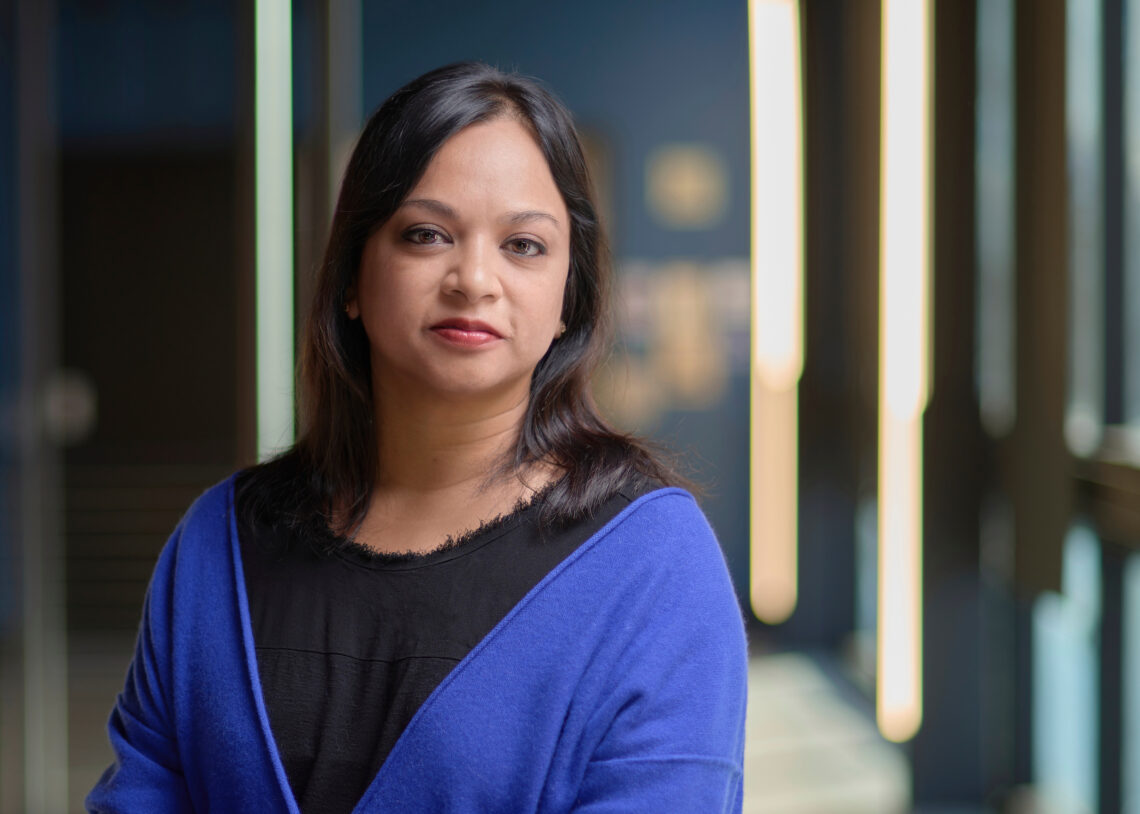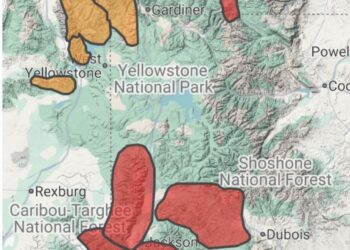By Diana Setterberg MSU NEWS SERVICE
From an early age, Neha John-Henderson thought she would become a medical doctor. She grew increasingly interested in the effects of psychological factors on animal and human health as her studies progressed, and then those associations became personal when her mother was diagnosed with cancer.
“I had to take a break from graduate school to be with my mother. During these challenging times, I realized that the stress and uncertainty was affecting my own health,” said John-Henderson, a professor in MSU’s Department of Psychology in the College of Letters and Science. “My story is an example of how what happens in our lives, and the things we learn from these experiences, can change our life direction.”
John-Henderson will discuss how the experience changed her research trajectory and continues to inform her work in a lecture, “The Long and Winding Road: My Journey to Resilience Research and the Power of Social Connection,” on Tuesday, March 4, as part of MSU’s annual Provost’s Distinguished Lecturer Series. The event will begin at 7 p.m. in the Museum of the Rockies’ Hager Auditorium and be followed by a reception. All events in the series are free and open to the public.
John-Henderson studies how loneliness and social connectedness affect risk for disease. During her postdoctoral research, she studied the physiological pathways through which stress can “get under the skin” and adversely affect health. She developed expertise in measuring sleep, cardiovascular disease risk and immune system markers to better understand individual health risks and resilience.
With “coincidental synchronicity,” she says, her background meshed with research already underway when she arrived at MSU in 2016. Allen Harmsen, then an MSU professor of microbiology and immunology, was co-director of a grant program to address health disparities facing Native communities in Montana and Alaska. With funding from Montana INBRE, Harmsen had been working with Betty Henderson-Matthews, chair of the math and science department at Blackfeet Community College; Ann Bertagnolli, professor and program coordinator for Montana INBRE; Agnieszka Rynda-Apple, associate professor of microbiology and immunology at MSU; and a team of Blackfeet students and faculty to establish a biomedical health research program at BCC.
Harmsen and Emily Salois, a member of the Blackfeet community and former community research associate at MSU, introduced John-Henderson to stakeholders in the Blackfeet community in 2016. Since then, they have partnered to build upon initial findings from BCC, which highlighted the role of social connectedness in health. In 2017, John-Henderson received funding from MSU’s Center for American Indian and Rural Health Equity to partner with BCC to conduct pilot studies on the relationships between community connectedness and disease risk in the Blackfeet community.
“It worked out that my background and interests lined up with what the community had been doing before I came and wanted to do moving forward, which is to focus on how social connectedness can be the resilience factor for health, particularly in the context of adversity. Over the years we have developed a collaboration that is both highly productive and rewarding,” John-Henderson said.
Their initial analyses confirmed that a strong sense of connection to the larger Blackfeet community offset the risky immune system profile typically associated with childhood trauma in a sample of Blackfeet adults. With grants from the National Institutes of Health, John-Henderson, Henderson-Matthews and a team of Blackfeet students and community members have built on that work ever since. They measure social connectedness using subjective perceptions, such as loneliness, and more objective measures, such as the size of one’s social network. They also measure multiple dimensions of health including cardiometabolic health, immune system function and sleep health. The team tries to understand the mechanisms by which social connectedness benefits the health of community members.
According to John-Henderson, members of a Blackfeet community advisory board often brought up the perception that community connectedness had declined with modernization and new technologies. More people spending time alone or on their phones, for example, can exacerbate loss of connection in a community that is already geographically isolated. She said the community is interested in solutions and in highlighting the resilience of the Blackfeet people, and the research will gather data to help foster social connections and improve overall health.
She said the data from this program of work are also relevant to all people and communities.
“It’s been shown across racial and ethnic groups that, in general, social connection is good for your health,” John-Henderson said. “Broadly speaking, it has implications for everyone. When you find yourself struggling, in the moments when you may be tempted to disconnect, that’s likely when connection matters most.”
The Provost’s Distinguished Lecturer Series recognizes outstanding MSU faculty for their creative scholarship and leadership. More information and the full lineup for the 2024-25 series can be found at https://www.montana.edu/news/23923/.














